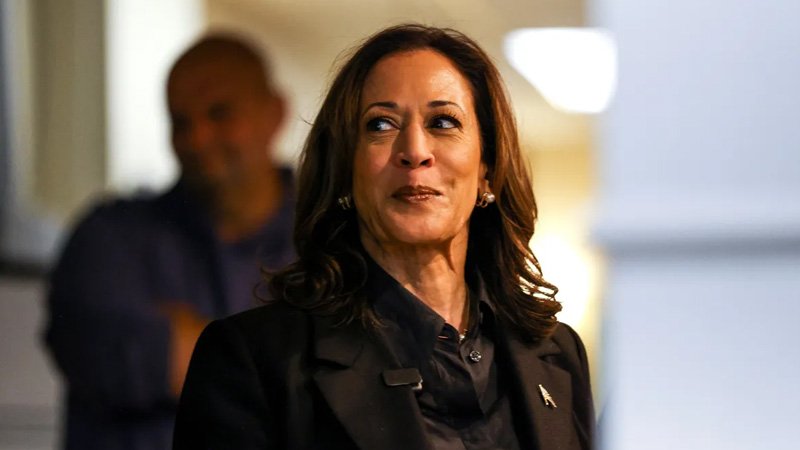
REUTERS/Quinn Glabicki
Vice President Kamala Harris skillfully sidestepped an attempt by former President Donald Trump to undermine her with his fear-based rhetoric aimed at courting key voting blocs, according to a new political analysis. Trump’s promises of protection to women, while attempting to frame Harris as inadequate, instead provided her with the opportunity to rise above his fear-mongering, argues journalist Susan Faludi in a New York Times column.
Faludi contends that Trump’s effort to drag Harris into his campaign of intimidation ultimately backfired, allowing the vice president to showcase her strengths. “Harris has demonstrated her ability to stand up to America’s most poisonous huckster without being intimidated by or engaging with his scare campaigns,” Faludi writes. “Crucial to our nation’s future, she’s proving to be an effective protector against the protection racket itself.”
The column, published Monday, focuses on Trump’s messaging toward women and the unique challenges Harris faces as a female candidate. Trump’s attempt to position himself as a protector of women was seen by Faludi as a rhetorical trap designed to provoke a defensive response from Harris—one that could alienate male voters.
During a campaign speech, Trump declared, “[Women] will no longer be abandoned, lonely, or scared. You will be protected, and I will be your protector.” Faludi argues that Trump’s promise was crafted to bait Harris into adopting a protective stance, which could be perceived as threatening to male voters. “Many voters, especially men, perceive the prospect of being protected by a woman as a threat,” Faludi explains. “In a society where men judge their worth by their ability to protect, being protected by a woman is seen as a disgrace, a stain on one’s honor.”
However, rather than falling into the trap, Harris defused Trump’s gendered attack with a single, powerful statement that shifted the narrative. “I don’t think the women of America need him to say he’s going to protect them,” Harris responded. “The women of America need him to trust them,” said Alternet.
Faludi believes that this strategic use of the word “trust” undercut Trump’s messaging, pulling the focus away from gender dynamics and back to substantive politics. By emphasizing trust rather than protection, Harris managed to sideline Trump’s attempt to frame her as a weaker candidate.
“If Mr. Trump embodies the make-believe rescuer, the bombastic redeemer who speaks loudly while carrying a tiny stick, Ms. Harris is his levelheaded, no-nonsense opposite,” Faludi concludes. Harris, she argues, offers workable solutions to real issues rather than amplifying imagined dangers, presenting herself as a “calmly common-sensical civic warden” and an effective counter to Trump’s rhetoric.


